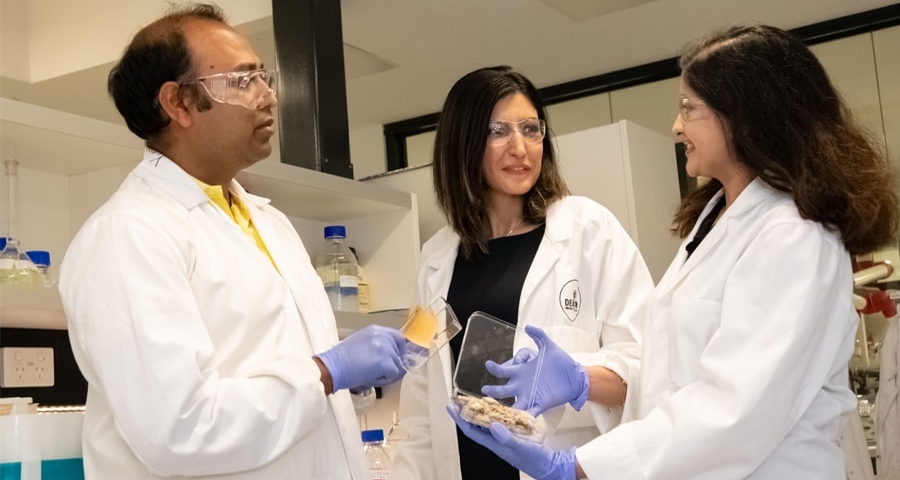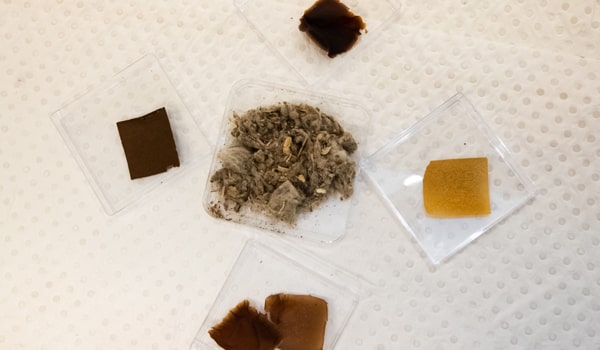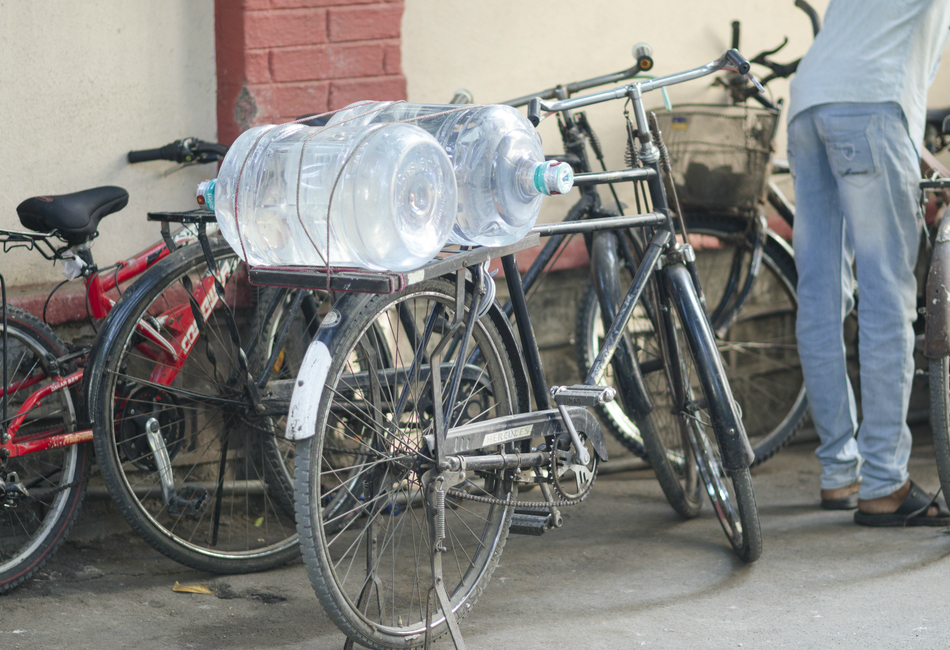Download Free Vegan Starter Kit -

Australian Scientists Create Biodegradable Plastic From Cotton Waste
Textile and fibre scientists at Deakin University in Melbourne, Australia, have discovered how to create biodegradable material from plant waste.
Deakin’s Institute for Frontier Materials (IFM), have created ‘bioplastic’ by repurposing cotton gin waste. Seeds, stems, short fibres and other waste by-products left behind from the ginning process used to separate cotton fibres are all used to create bioplastic. The team has been working on transforming gin trash for more than 18 months.
Dr Maryam Naebe, who leads the Institute’s team, said of the discovery: “About 29 million tonnes of cotton lint is produced each year but up to a third of that ends up as cotton gin trash, where it’s then sent to landfill or burned, representing a major environmental impact and lost material value. Adding value to this waste product will give cotton growers and farmers an additional income stream, while also offering a sustainable alternative to harmful synthetic plastics.”

The process involves using environmentally-friendly chemicals to dissolve the cotton waste product, with the resulting bioplastic can be used in a range of ways such as a bale wrap, fertiliser and cottonseed packaging. “Cotton gin trash is a promising source of renewable biomass because when it’s broken down the resulting organic polymer can potentially be converted into a versatile biodegradable material,” Dr Naebe confirmed. “Compared to synthetic plastics, our bioplastic is made without the need for toxic chemicals – which makes it safer and cheaper to produce at a mass scale – and it has the added bonus of contributing to the circular economy.”
The IFM team is now applying their discovery to other organic waste and plant materials such as lemongrass, hemp, almond shells, wheat straw, wood sawdust and wood shavings. “We want to lead and inspire innovations in materials science and engineering that have a transformational impact on society,” Dr Naebe said. “Our mission at IFM is to keep pushing the boundaries of materials science in order to raise living standards across the globe – by redesigning materials for a circular economy, innovating with natural materials, and imparting them with extraordinary qualities.”
Like this?
Read: Leather Made Out of Fruit Waste? Yes, Please!
Read more: This Country Has Made It ILLEGAL To Not Serve Vegan Options At Public Buildings!
AUTHOR

related

Shasvathi & Karthik’s Vegan and Eco-friendly Wedding Will Definitely Inspire You!

- Shruti Sunderraman
- 9.8 K
Explore
Contact Us
About Us
Stay Connected
Copyright ⓒ 2017-2023. VEGAN PASSION PRIVATE LIMITED. All Rights reserved.
For more information, please write to hello@veganfirst.com
Registered Office Address: 55, 2nd floor, lane 2, Westend Marg, Saidullajab, Near Saket Metro Station, New Delhi, Gadaipur, New Delhi South West Delhi, DL










